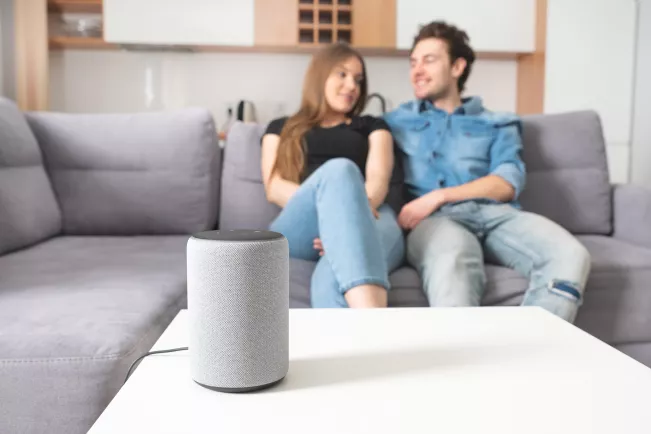Communications and Marketing
Alexa, Siri, how do you feel about my privacy?

They help to save energy, monitor health and fitness data or provide access to series and movies: Networked technical devices turn our homes into smart homes. They are often connected to the internet. In addition to the practical benefits, this raises the question of data security and data protection. Is the voice assistant eavesdropping on private conversations, is the robot vacuum cleaner surveying the home, or is the TV now also watching, but in the home? Consumers have often been unable to find answers to these questions, says Professor Luigi Lo Iacono from Hochschule Bonn-Rhein-Sieg University of Applied Sciences: "New devices are constantly coming onto the market, especially in the smart home sector. So many and at such a high rate that no single institution is now able to fully test their functions," says the scientist.
Strengthening the right to informational self-determination
In the joint project "UnboxingIoTPrivacy", the researchers therefore want to develop tools for the systematic analysis of privacy-relevant properties of networked devices. In the next step, these tools should make it possible to prepare the device properties in an understandable and comprehensible way and then make them available to prospective buyers. Making the impact of IoT products on people's privacy more transparent is an important step towards fulfilling the right to informational self-determination: "In Germany, everyone is allowed to decide for themselves how their personal data is disclosed and used. However, this is only possible if the relevant information is also available and comprehensible. Research can and must play an important role here," says project manager Lo Iacono.
A platform for exchanging tools and information
To ensure that as many people as possible can benefit from the tools and test results, the project team wants to develop them together with members of the public and make them available via an online platform. On the one hand, the researchers want to use the tools to help experts and tech-savvy private individuals to carry out their own product tests. On the other hand, the project team wants to develop its own privacy label that will enable laypeople to get a quick and easy-to-understand overview of the privacy properties of certain IoT devices. By working with consumer protection organizations, test platforms and multipliers, the researchers want to establish contact with potential testers at an early stage. This should ensure that the tools developed are as user-friendly as possible.
Kontakt

Luigi Lo Iacono
LfbA: Cyber Security & Privacy, Former Professor of the Department of Computer Science, Information Security/Data and Application Security
Location
Sankt Augustin
Address
Grantham-Allee 20
53757, Sankt Augustin